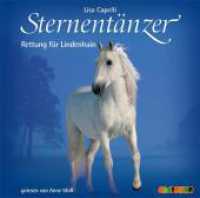- ホーム
- > 洋書
- > 英文書
- > Literary Criticism
Full Description
The volume includes a prologue and an epilogue. Each chapter constitutes an extensive interview with one of these colleagues. Chapter one (Mignolo): colonial and postcolonial dimensions since the Early Modern / colonial period (circa 1500) and the legacy of post-structuralism in American academia. Crucial notion of "the colonial difference" vis-à-vis the critical interrogation of the category of "West." Chapter two (John Beverley): we are dealing with the insertion of postmodernism, cultural studies and subaltern studies, and also the insertion of the sign "Baroque," inside American life. Chapter three (Adorno): we are dealing with avatars of colonial studies of Latin America in the "Home of the Brave" particularly in relation to the work that defines her on the historical figure of Guaman Poma de Ayala. Chapter four (Rabasa): we are dealing with the themes of (epistemic) violence apropos Precolombian legacies, the historical relations between Mexico and the United States and the implications of subaltern studies. Chapter five (González Echevarría): in marked contrast with what has preceded, we are dealing with the vindication of pleasure in literary and cultural criticism and repudiations of politics or ideology, within rich historical continuities between Spain and Latin America. There are at least five different nationalities (Argentina, American, Mexican, Cuban, Spaniard) and more than five institutional affiliations (Duke, Yale, Pittsburgh, etc.). Fernando Gomez Herrero has had a roving faculty experience in a few American and British universities (Duke, Stanford, Pittsburgh, Oberlin College, Birmingham, Manchester, etc.).
Contents
Acknowledgments; Foreword; Introduction ; 1 Avatars of Colonial Studies of Latin America in the Home of the Brave: A Conversation with Rolena Adorno; 2 About the Postmodernist Convergence of the Baroque, the Subaltern, and Many Other Signs: A Conversation with John Beverley in the Cathedral of Learning; 3 The Pleasure of Literary Criticism without Attachments to Any Method or Ideology Whatsoever: A Conversation with Roberto González Echevarría; 4 About the Colonial Difference or the Emergence of Thinking That Was Not Considered to Be Thinking: A Conversation with Walter D. Mignolo; 5 Precolombian Legacies and Indigenous Presents in the History of Mexico; Or How to Find Other Possibilities within Constitutive (Post-)Colonial Violence: A Conversation with José Rabasa; Afterword; Bibliography; Index






